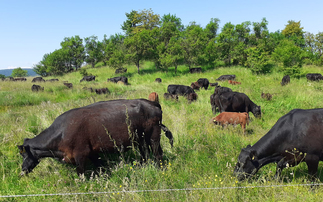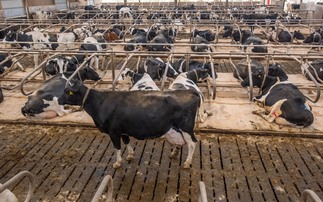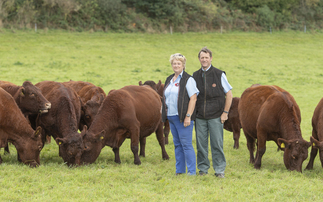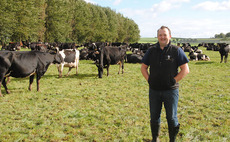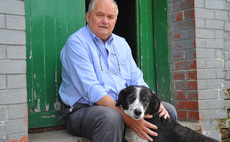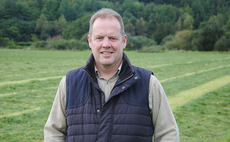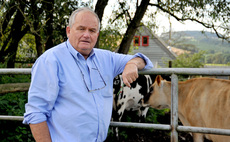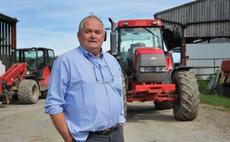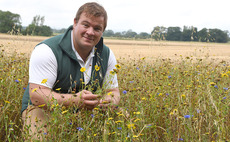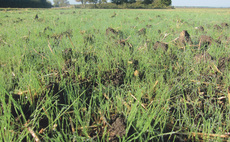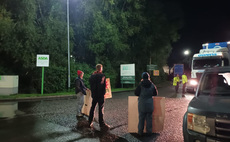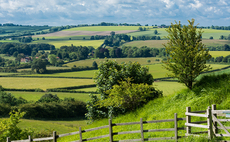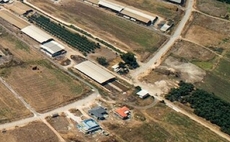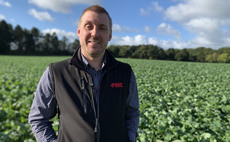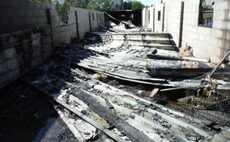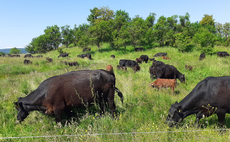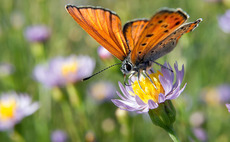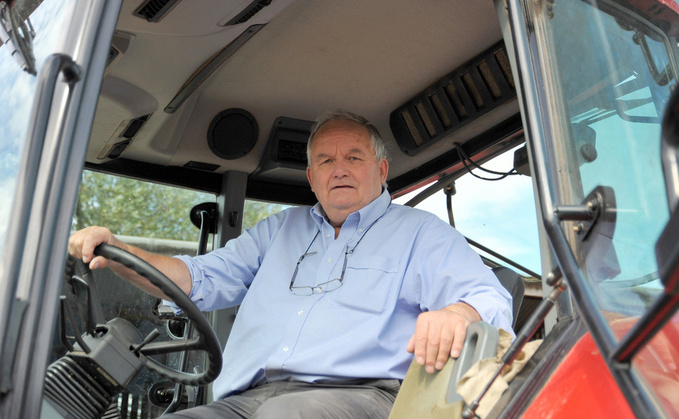
This month, Roger Evans tells us about how lockdown has curtailed his over-the-hedge inspections of his neighbour's activities, and how at home he is waging war on the profusion of docks and nettles.
Some time at the start of the lockdown I had a birthday, so Ann and I decided to drive to a Mid Wales beauty spot and have a picnic.
Although we had salmon sandwiches, this was still a big saving as we usually go for a meal in the pub in the village. As the grandchildren invariably tag along, this was getting expensive - and no prizes for guessing who ended up paying.
We enjoyed the picnic so much we did it again the following week, although a different place this time and egg sandwiches.
I know we shouldn't have gone to either really, but both places were deserted and we didn't
speak to anyone.
But by the following week, the crisis had become a lot more serious and largely the population were adhering to the lockdown.
However, we still fancied a picnic and the weather was still fine. So what better place than in my top field where we are at about 1000 feet and the panoramic views are spectacular?
To kill two birds with the one stone, we timed my daily trip around the cattle for the middle of the day.
Right in the middle of the field is a disused reservoir which is the remains of a water scheme, and is brick built, about 10 feet square and goes to about two feet above the ground.
I thought that it would be a good place for me to sit and eat my lunch. It's a view I know well, I see it most days, and never tire of seeing it.
Many years ago, I had a small farm walk for local First Milk members, and when the tractor and trailer got to this field, I had a job to get them to move on because they were so taken with the view.
I sit down and take it all in, but this time there is a difference.
It's a bit hazy, but a new dairy unit has gone up about five miles away. I can see the buildings, I can see which fields the cattle have grazed and I am sure I can see a herd of cows.
What I can see quite clearly are the new cow tracks that have been constructed. In normal times I would drive over to have a closer look and, with a bit of luck, I could count the cows and pass this on to you along with other details.
Things are getting serious when being nosey is considered to be non-essential travel.
Spring time brings with it the organic farmer's annual battle with weeds.
We are largely grassland farmers now, and you can do something with weed in grassland even if it's only to cut them down.
The only deviation to this is to put in a field of kale in late summer for the dry cows and heifers. We plough and work the field, leave it for about three weeks to allow weeds to germinate, then we work it again and drill it and, if the weather suits, the weeds will die and the new crop flourish.
Drilling in late summer or early autumn seems to miss the fly as well as you can't do anything about them either when you are organic.
The main two grassland weeds I have to worry about are nettles and docks. Nettles are a source of puzzlement to me. I can remember that years ago you could spray a patch of nettle with your knapsack and you wouldn't see them again for three or four years.
In fact, I got on top of the nettles to such an extent that it was no hardship to put the knapsack on your back when you went to fetch the cows for afternoon milking and to give the odd nettle a bit of a squirt.
I am not sure if the spray was diluted, but in latter years, when I used to carry a tank on the back seat of my truck and spray with a lance out of the window, you had to spray every year. Now we just cut them before they become too unsightly.
I sometimes wonder that if we had a very dry spell, that you could work up a big patch two or three times, say with a power harrow, and burn the nettle roots.
But by far the worst of my weed problems are docks, probably because they are most numerous and, therefore the most unsightly and very persistent.
We had one ley particularly badly affected and so, before we went organic, we got a contractor to spray the worst patch.
This, with hindsight, was a mistake. We had a very good percentage of white clover present and we wanted to keep as much as we could, but the mistake was we should have sprayed the lot.
A lot of organic farmers say that the year before they go organic, they probably do more spraying than they have ever done before.
The only treatment we now have for these docks is to give them a hard time. But fortunately we can do that. Because stocking rate is reduced when you go organic, we regularly have to bring fresh grass home from our away land by zero grazing. Therefore, we zero graze this dock field as often as we can.
As soon as there is enough grass there to cut a useful swath, and before the docks have gone to seed, we go in with the mower.
Altogether, I think the field was cut seven times last year. This has two beneficial effects. Firstly, it removes the docks before the agent sees them, and secondly as a result there are a lot less docks there this year.
I am very hopeful that with a further year of the same treatment, we might win this particular battle.
But on thinking a bit more about it, I might have been too hasty trying to get rid of my docks. I might have missed a trick.
I refer to the recent shortage of toilet rolls. If you can't buy a toilet roll, then the next obvious purchase of choice has to be a dock leaf.
I could have sold large quantities of fresh, organic, vegan dock leaves.
What could be a better option to include in your personal hygiene kit? Who knows, I might even have sold enough to pay the rent.












